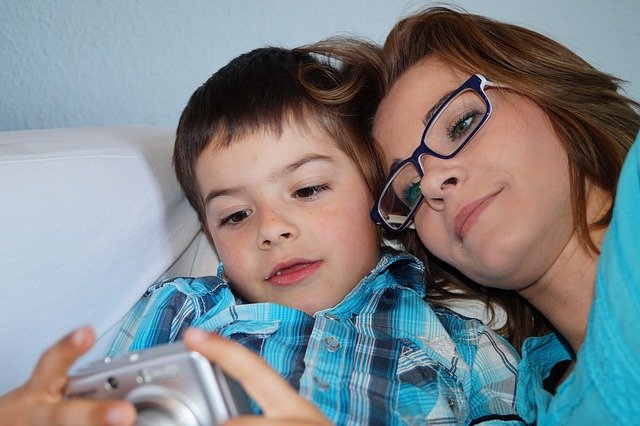I don’t believe there is a parent of a child with autism and/or ADHD who hasn’t felt themselves being judged to be a bad parent. Whether it’s our child melting down at the store, refusing to do as we ask because it’s not part of their routine or running away because they elope, we feel the stares and the thoughts (and even the remarks) from others who are judging us. I too have felt this many times. I’m here to tell you – you are not a bad parent. No one knows your child better than you, and people who do not have special needs children have no idea the challenges you face on your journey. Yet, how can you as an autism parent deal with the judgement from others?
A study from England in 2013 evaluated the problems that parents of children with autism face. The first identified was their child’s behavioral difficulties. The second? The judgement of others regarding their parenting. The third problem was the financial burden placed on families with a child who has autism.
If you have ever felt this issue was just yours, please know that you are not alone. We have all been there. Whether it’s the snide remark from a person at the store or the judgmental looks from people at your church, this problem is real. Even well meaning family members who tell you that you need to discipline your child more do not understand your child fully or what works and what doesn’t when it comes to handling their behavior. It makes you feel like you are doing something wrong.
Here are some things I keep in mind when I feel the judgement from others over my son’s actions.
Their judgement says more about them than you

Unfortunately, some people need to make themselves feel better by thinking they are superior to others. They may or may not have children of their own. Maybe they had a child who was neurotypical and was very well-behaved naturally. Maybe they do have children and struggle too, so they judge out of fear that others think they are a bad parent.
Their judgement says much more about themselves than about you. If they don’t know you, then they know nothing about your child or your life. If they do know you as an acquaintance, then they still don’t really know you. If they did know you, maybe they would have a better understanding and would provide grace and empathy.
Remember that your child doesn’t look disabled
For most children with autism and ADHD, they look like every other child. There are some who are more noticeable if they are using an augmentative and alternative communication (AAC) device or other assistive technology. I know I’ve had many people over the years tell me that our son J “doesn’t look autistic.”
Because they are not identified as having autism and ADHD from the outside, people assume our children are neurotypical. Therefore, their expectation is that our child acts like a neurotypical child. Remembering that can help us put the judgement from others in perspective.
They don’t understand the autism/ADHD journey

The prevalence of autism is now 1 in 54 eight-year-old children in the United States. More than 10 percent of children worldwide have ADHD. More than half of children with autism also have ADHD. While these numbers are growing, there are still people who do not have family or close friends who have children on the spectrum or with ADHD. They have not had a glimpse of what the autism and ADHD journey is like – even from afar.
Unless someone either has a special needs child or has been intimately involved with a family who does, they don’t truly understand what their lives are like. They don’t understand the challenges and rewards that come from being on this journey.
Don’t make their judgement mean anything
Since others do not know or understand you or your child, you need to disregard their judgement. Maybe if the cashier who is exasperated by your child’s behavior as you try to get them out of the store knew you and your child, she would understand and try to help. If the other parent on the playground knew your child, maybe he too would encourage his child to play with yours.
I know most of us are taught not to judge a book by its cover. Therefore, don’t let the judgement from others who don’t know mean anything.
Don’t let their expectations change yours

You know your child’s capabilities and what behaviors they are working on. You have certain expectations for how your child should behave. Improving behaviors include many steps. While we certainly do not want our kids harming anyone, causing damage to property or completely disrupting an event, we have our expectations for how our children should and are capable of behaving. As an autism parent, don’t let others’ judgement change your expectations.
You know your child best
I think we’ve all heard a version of, “if that were my child, I would make them behave.” Probably not. Others do not know your child like you do. You know what is best for your child and what discipline and rewards work or don’t work. Also, you know what will set your child off on a meltdown and how to best calm them to get them through it. As their parent, you know what eases your child’s stress and brings a smile to their face. Keep in mind that you need to do what is best for your child.
Focus on your child and ignore others around you
Sometimes, the best way to way to deal with judgement as an autism parent is to ignore it. Focus on your child’s needs instead and do not worry about what others think. If they are not going to help and support you, then it’s not worth your time to worry about their judgement.
Be confident in what you are doing
Remember to be confident in your parenting of your child. You love your child, and you are doing the best you can for them. Don’t let others make you feel otherwise.
As an autism and ADHD parent, how have you dealt with the judgement from others? What words of encouragement do you have for other parents? Leave a comment, so we can support one another on this journey!








